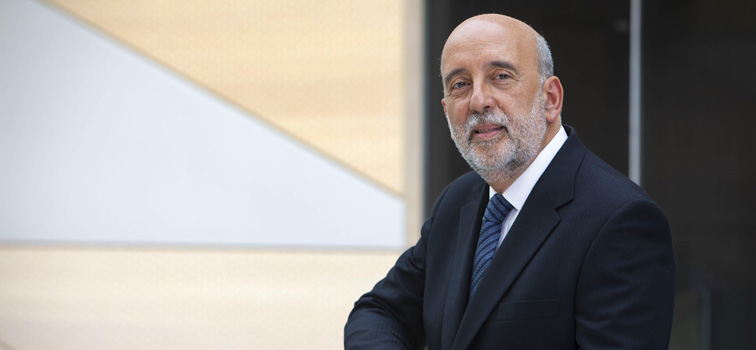Introductory remarks at Dundalk Institute of Technology - Governor Gabriel Makhlouf
03 October 2019
Speech

Introductory remarks at Dundalk Institute of Technology
Good morning. It is a pleasure to meet with you today.
I noticed on the way in that this lecture theatre is named after a predecessor of mine T.K. Whitaker.
Ken Whitaker was an eminent public servant and served (inter alia) as Governor of the Central Bank of Ireland between 1969 and 1976.
As some of you may have come across in your studies here in Dundalk Institute of Technology, many of the lessons of his work, for example the move away from protectionist policies and towards internationalisation, are as salient today as they were in the late 1950s.[1]
Turning more towards the future, I am looking forward to visiting the Regional Development Centre later today, which I understand works with companies across the North East from student start-ups, to academic spin outs, SMEs and multinationals.[2]
Whilst I am only a month in the job, I am trying to get out and about to visit as many places and engage with as many people as I can across Ireland. In addition to visiting the Ploughing Championships in County Carlow recently, I will visit Waterford next month.
It is particularly interesting for us to visit Dundalk and hear from students and members of the Chamber of Commerce here about how Brexit will affect you personally, the Institute of Technology, your businesses, and your communities.
Ireland in general is particularly reliant on the UK in areas such as agriculture for exports, and manufacturing for imports. The Border region where trade relationships are particularly close, is vulnerable with the strong inter-linkages between Irish and UK firms’ supply chains.[3]
The fall in the value of sterling has been the main channel which we have seen the economic effects of Brexit act to date and I am sure this has already had an impact on many of you and your businesses.
The real effects of Brexit will of course only be known once the UK leaves the European Union, and fundamentally, the manner in which they depart.
After many years of close integration between the two economies as part of the EU, businesses and the Irish economy will need to adjust to new trading arrangements.
I look forward to discussing with you how Brexit may affect you, and how you have been preparing.
Any form of Brexit will be damaging for Ireland, with a "no-deal" Brexit especially so.
The mission of the Central Bank of Ireland is to serve the public interest by safeguarding monetary and financial stability and by working to ensure that the financial system operates in the best interests of consumers and the wider economy.
Recognising the risks from Brexit, and in line with our mandate and mission, our work has focused on ensuring that the risks to the Irish economy are understood and that financial stability and consumer protection risks are identified and mitigated to the greatest extent possible. This is particularly pertinent for the "cliff-edge" risks associated with a hard or no-deal Brexit. We have also been working to ensure that regulated firms deliver on their responsibilities of preparing appropriately for these risks.
For students of business, finance and accounting here in DkIT you will no doubt be following developments with interest. Brexit has forced us all to think about how we can be best prepared for such a disruptive event, not least the students of politics.
The Central Bank supports the development of expertise in the fields of economics, business and finance, particularly for young people, such as the Central Bank of Ireland’s Generation €uro Student’s Award for young economists in Ireland which I will launch later today when I visit St. Mary’s College.
This competition gives us an opportunity to recognise excellence in the next generation.
It also gives students the chance to build valuable life skills while challenging themselves to learn more about the work performed by the Central Bank of Ireland, the European Central Bank, and the Eurosystem more widely.
They will learn how monetary policy decisions are taken to ensure stable prices, and how key economic policies affect our daily lives.
The Central Bank of Ireland is also an employer of graduates, who have an opportunity to make a difference in the roles they undertake. Our three year programme has over 70 graduates working across regulation, central banking and operations. Our graduates come from a diverse range of backgrounds as we value the difference that people can bring. We will be coming to your career fair in DkIT on 16th October, so make time to come and talk to us.
I will now hand over to Mark Cassidy, the Central Bank’s Director of Economics and Statistics who will give a short presentation (PDF 1.14MB), after which I look forward to an engaging discussion with you.
Thank you.
[1] As articulated by a colleague of mine on the Central Bank’s Commission, Professor Alan Ahearne, here: https://www.irishtimes.com/opinion/whitaker-s-work-is-as-relevant-as-ever-to-today-s-ireland-1.2896529
[2] See https://www.dkit.ie/innovation-and-business/regional-development-centre.html
[3] See Stephen Byrne and Jonathan Rice, (2018), ‘Non-Tariff Barriers and Goods Trade: a Brexit Impact Analysis’, Central Bank of Ireland, Research Technical Paper Vol. 2018, No. 7. Available here (PDF 452.65KB).